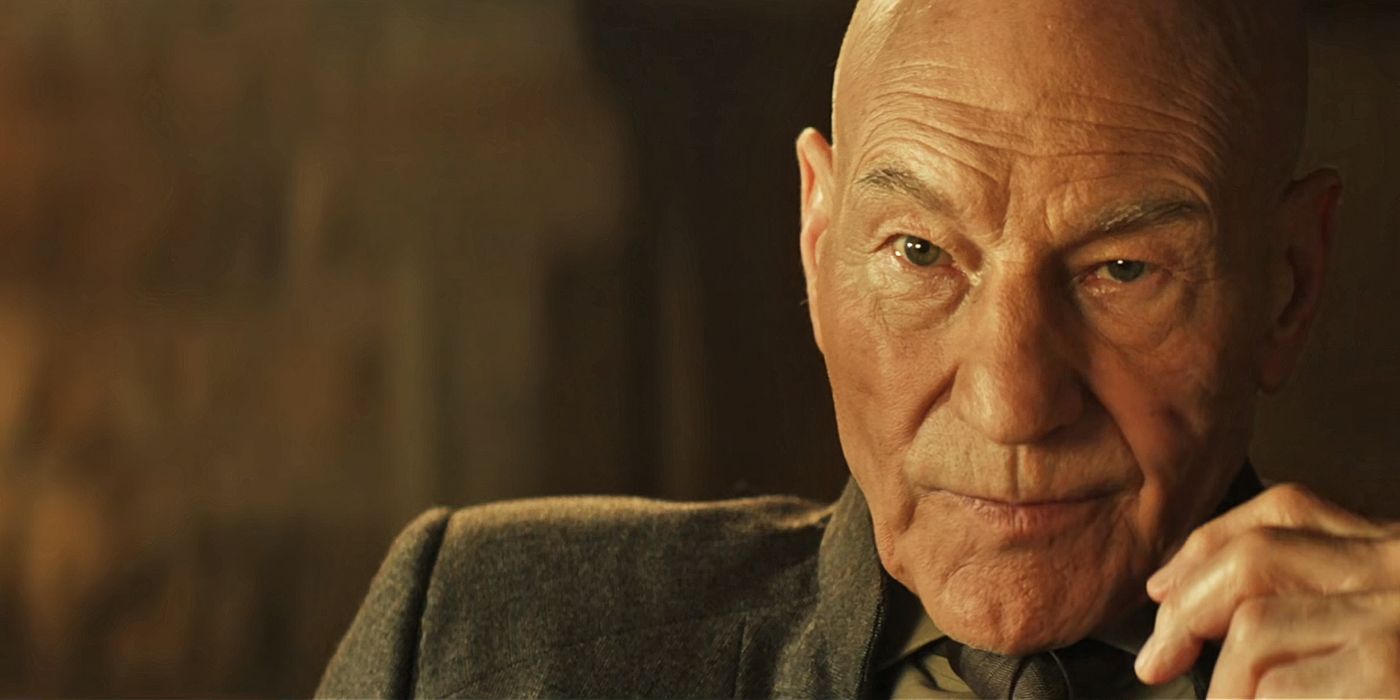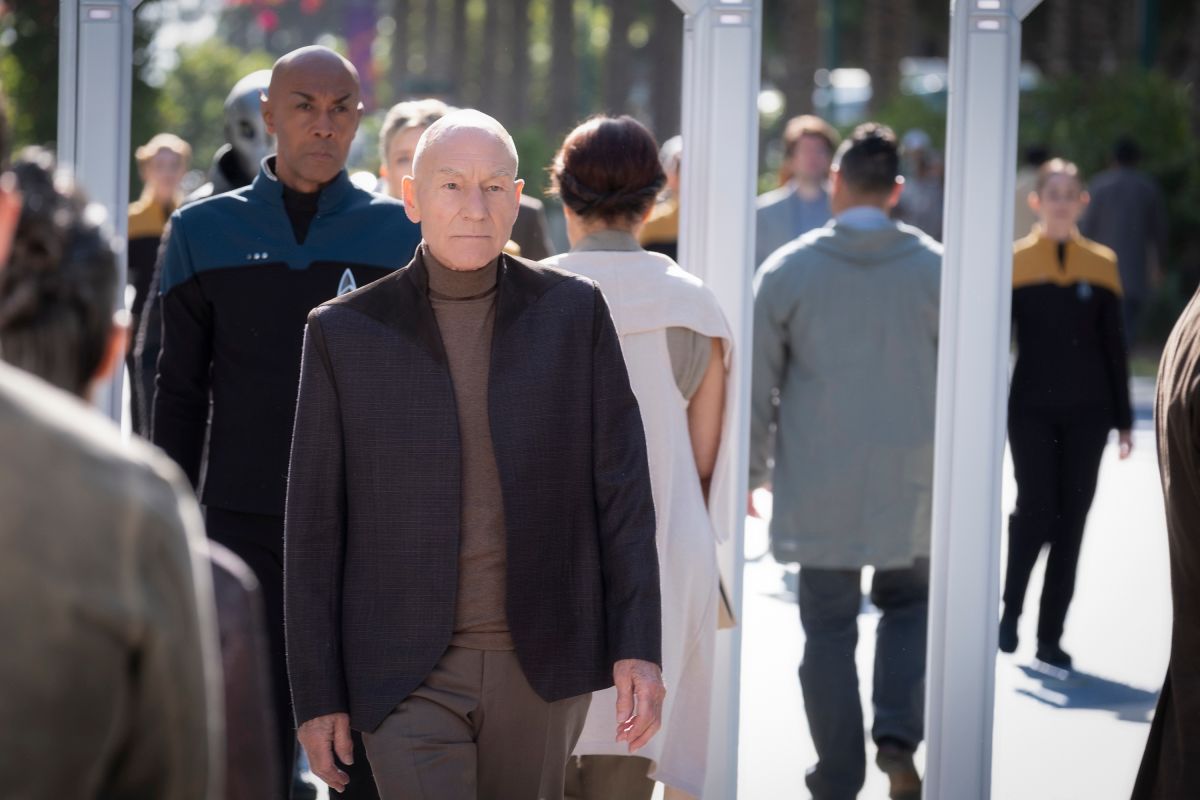WARNING: The following contains spoilers for Season 1, Episode 2 of Star Trek: Picard, "Maps and Legends," now streaming on CBS All Access.
Since the premiere of Star Trek: Picard fans have been presented with a Starfleet that has drifted far from its utopian values. “Maps and Legends” had Jean-Luc return to Starfleet and gave us a first-hand opportunity to see just how much they’ve fallen astray. This has upset sections of the fanbase, decrying such a cynical fate for Starfleet. This is not the Federation they knew.
Ever since the 2009 J.J. Abrams reboot, subsequent Star Trek entries have been notably more grim and dark. The one franchise in pop culture known for its optimism has seemingly embraced the ever-popular buzzwords used to gather interest. Some fans have levied this complaint against Picard, and it’s easy to see why.
It was hard to watch Jean-Luc being denied help from Starfleet on his humanitarian mission. The f-bomb Admiral Clancy dropped on the former captain to drive her point home was a first for the franchise, and certainly the last thing you’d expect to hear a Starfleet officer say. It was equally hard to watch the Federation give in to fear after a terrorist act and ban artificial life. The Romulans’ infiltration of Starfleet is likewise a bleak and bitter pill to swallow. All of these elements seem counter to the kind of stories The Next Generation and Captain Picard tried to tell.
So why bring this beloved character out of retirement just to drag him through the mud? The creatives in charge could have picked any number of subjects for a new series, and Patrick Stewart wouldn’t waste his time on a frivolous story. Jean-Luc is back for a reason. There is a message to Star Trek: Picard and the wizened captain is the best person to deliver it.
The show is not being grim for grimness’ sake like many other recent shows and films. Picard seems centered on having the franchise’s utopian past come face to face its cynical present. Critics have levied complaints at the franchise for displaying an optimistic view of our future that borders on naivety. But this hopefulness has, until recently, been one of the defining aspects of Star Trek and is a major reason why it has such a dedicated fanbase.
Jean-Luc Picard is the embodiment of the classic Star Trek ethos, and represents to many the quintessential Starfleet officer. His return, older, wiser, but no less idealistic, is meant as a rallying cry. The show, much like the character, is putting out a desperate plea for a return to empathy in a time when it is in short supply.
Star Trek has always been about learning to put aside our fears and prejudices. Picard in particular, is known as a master diplomat. If there’s any character who can persuasively make the case for a return to the original ideals of the Federation (and Star Trek as a whole) it’s Jean-Luc.
It’s still early in the first season, but so far the show has made an impassioned argument for hope against cynicism. Even when it is hard and the world seems like a scary place, we must never give up hope. The show has already been renewed for a second season, so Jean-Luc has the perfect chance to spread his message and see his new mission through.
Star Trek: Picard stars Patrick Stewart, Alison Pill, Michelle Hurd, Evan Evagora, Isa Briones, Santiago Cabrera, and Harry Treadaway. New episodes of the series premiere every Thursday on CBS All Access.



